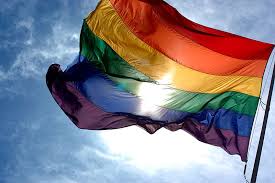
March 10, 2014
Well, that didn’t work.
With the recent signing of harsh anti-gay laws by the otherwise pro-Western presidents of Uganda and Nigeria, it’s time for the West to reassess how it can help advance LGBT rights in Africa.
And then take bold action.
Why Ugandan President Yoweri Museveni or Nigerian President Goodluck Jonathan calculated they had to support the further criminalization of homosexuals is a good question.
Perhaps they needed to lock in the votes and money of conservative political and religious groups in their countries, or to unite these constituencies against a common “threat.” The tiny LGBT community in those countries, of course, threatens no one.
Maybe Presidents Museveni and Jonathan are willing to risk future flows of aid from North America and Europe because they now have other options, particularly via lines of credit from China, as well as partnerships with Saudi Arabia, Iran and Russia, among others.
Almost immediately following Ugandan signing, three European countries—Norway, Denmark and the Netherlands—halted aid spending in that country. The World Bank froze new loans. Other donors are considering similar action.
But Ugandan political leaders have responded with indifference along with anti-gay and anti-colonial rhetoric.
And conditions inside Uganda are getting uglier. A major newspaper there just published its list of the country’s “top 200 homosexuals”. The threat to the safety of those on that list is very real.
And, in Nigeria, four men were recently convicted of having gay sex, horsewhipped, and ordered by the court to also pay fines or face jail time.
These events signal that it’s time for the West to reassess, regroup, tool up, and settle in for 15 to 20 years of hard work and learning. It looks like this particular culture war will be a long one.
But this is not a fight that the West can–or should—try to win on its own.
Brazil, South Africa and other non-Western governments, particularly in Latin America, have played important roles in promoting LGBT rights at the United Nations.
What is needed, in fact, is a broad-based, global coalition of countries from all parts of the world to press for full citizenship and human rights for sexual minorities.
The United Nations and its agencies should also be full and active partners in this coalition.
And the members of this global coalition must use all the tools at their disposal.
Canada’s Foreign Minister has rightly denounced the Ugandan law. To his credit, Mr. Baird was an early and vigorous critic of this legislation.
But after social conservatives supporting the Conservative Party last year told him to drop the gay-rights issue, which they characterized as his “personal cause,” Mr. Baird seemed to go quieter on this file.
The Harper government is now presented with an opportunity, and a duty, to re-engage fully. Mr. Baird should continue speaking out against these and similar laws, as should Canada’s ambassadors abroad. This kind of public diplomacy matters.
At the same time, however, Canada should also deploy another policy tool: foreign aid. Here’s what should be done:
First, the Foreign Minister should convene advocacy and development groups in Canada and abroad to develop Canada’s long-term strategy for advancing LGBT rights worldwide, as a contribution to the work of the coalition.
Second, Mr. Baird should earmark at least $100 million in development funds to implement this strategy in developing countries, especially those in Africa, over the next ten years. These funds would provide grants to international and local NGOs working with gay, lesbian, bisexual and transgender persons, as well as assistance to LGBT-owned and -friendly businesses, and exchanges among governments and universities on gay-friendly policies and programs.
These funds would also support efforts to mount legal challenges, education and research with judges’ associations, and engage regional organizations to support reform efforts.
Third, this program should use experiments and pilot projects, monitoring and learning to determine what projects can be scaled up as the struggle for LGBT rights evolves in diverse settings.
Canada could even use this program to help animate and convene the global coalition as a whole.
Overall, there should be two guiding principles in all of this work.
The first principle is to do no harm. The lives of sexual minorities must be protected, not put at risk.
And the second principle is to listen.
It is only by listening, attentively and continuously, to activists and their allies on the ground that the global coalition for LGBT rights will be able to achieve better outcomes in this important effort.
See the McLeod Group’s policy paper, Lesbian, Gay, Bisexual and Transgender Rights: A Call for Canadian Leadership, available at http://www.mcleodgroup.ca/mcleod-group-resources/policy-papers/.
